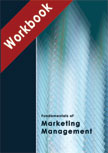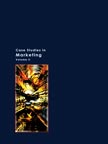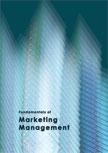Catch-22 for Kellogg's?
|
|
ICMR HOME | Case Studies Collection
To download Catch-22 for Kellogg's? case study
(Case Code: MKTG212) click on the button below, and select the case from the list of available cases:

» Marketing Case Studies
» Marketing Management Short Case Studies
» View Detailed Pricing Info
» How To Order This Case
» Business Case Studies
» Case Studies by Area
» Case Studies by Industry
» Case Studies by Company

Please note:
This case study was compiled from published sources, and is intended to be used as a basis for class discussion. It is not intended to illustrate either effective or ineffective handling of a management situation. Nor is it a primary information source.
Chat with us

Please leave your feedback

|




Case Details:
|
Price: |
| Case Code |
: |
MKTG212 |
For delivery in electronic format:
Rs. 400;
For delivery through courier (within India): Rs. 400 + Shipping & Handling Charges extraThemes
Promotion | Celebrity endorsement | Public Relations | Brand Management |
| Case Length |
: |
24 Pages |
| Period |
: |
2008-2009 |
| Pub Date |
: |
2009 |
| Teaching Note |
: |
Not Available |
| Organization |
: |
Kellogg Company |
| Industry |
: |
Consumer Packaged Goods |
| Countries |
: |
US |
Abstract:
|
This case is about the celebrity endorsement controversy
cereal and snack manufacturer Kellogg Company (Kellogg) got embroiled in early
2009. The case discusses the fallout of an endorsement deal between Kellogg
Company and 2008 Olympic swimming champion Michael Fred Phelps (Phelps) after
the latter was photographed smoking marijuana from a bong.
In August 2008,
Kellogg entered into a deal with Phelps to endorse its Corn Flakes and Frosted
Flakes. As part of the deal, Phelps became the spokesperson of the company and
his images appeared on boxes of Kellogg's Corn Flakes and Frosted Flakes. In
February 2009, a British newspaper News of the World published a photograph of
Phelps smoking marijuana at a private party.
|

|
The day after the photograph was published, Kellogg announced
that it would not renew its advertising contract with the ace swimmer as his
'most recent behavior is not consistent with the image of Kellogg'. The case discusses the consequences of Kellogg's decision to drop Phelps and how Kellogg, which had earned a name for itself in recent years as a company with high ethical standards, faced a major backlash and calls for boycott of its products.
While some consumers felt that Kellogg's decision to drop Phelps was right, there were others who were unhappy with the judgmental approach adopted by the company. They felt that Phelps, who had won laurels to the US, did not deserve such treatment.
Moreover, the sizable number of people who supported the use of marijuana and were fighting for a change in the marijuana law in the country, too criticized the company. Critics felt that Kellogg had no right to judge Phelps when its own products, which were marketed as a complete breakfast foods for children, were laden with high sugar and were detrimental to health.
The case talks about how the entire episode affected the brand image of Kellogg as analysts felt that by breaking its relationship with Phelps and by being harsh and judgmental in its approach, Kellogg had risked its own reputation. The case concludes by discussing Kellogg's predicament as an example of how the roles of PR had changed with the emergence of the new media channels.
Issues:
» Analyze the advantages and disadvantages of celebrity endorsement deals.
» Understand the effects of celebrity endorsements on the image of a company.
» Examine the role of Public Relations (PR) in the era of the Internet and social media.
» Study the ethical issues underlying celebrity endorsement deals.
Contents:
Keywords:
Promotion, Celebrity endorsement, Sponsorship, Public relations, Communication, Ethics
Brand reputation, Company reputation index analysis, Internet and social media, Consumer packaged goods, Kellogg, Kellogg's , Michael Phelps
Introduction
- Next Page>>
|
|










